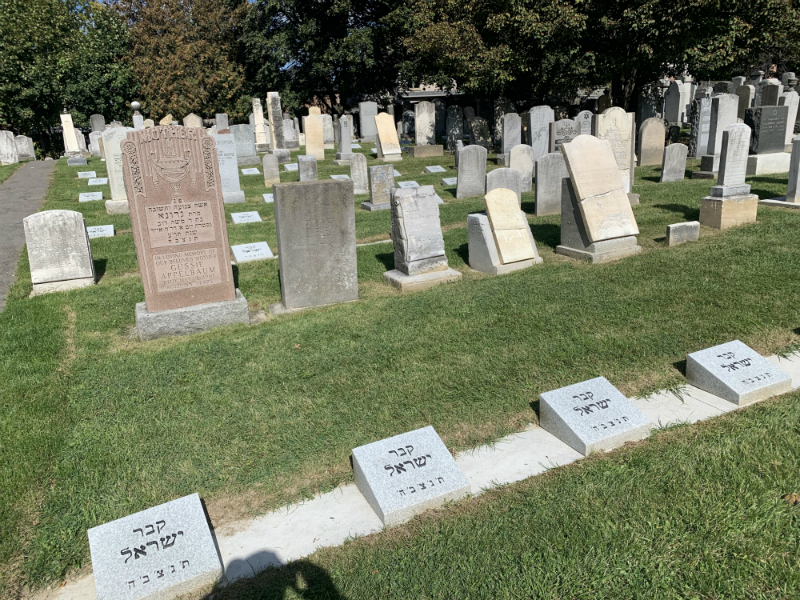The Province of Ontario declared a state of emergency today, in response to the spread of the coronavirus, that included a prohibition of all organized public events over 50 people, even communal services in places of worship. Prior to the formal order from the province, however, many synagogues and funeral homes had already independently come to the decision to cancel such events and, in many cases, close their doors entirely.
On March 15, Beth David B’nai Israel Beth Am synagogue in Toronto made the decision to cancel all services, shul president Andy Pascoe said. He said even though there were no formal orders to cancel services at the time, the decision became clear to the shul’s leadership as they observed what was happening in the broader community and Jewish community in terms of the escalation of the number of COVID-19 cases in general and especially among the elderly.
“We just felt that it was better to be safe than sorry,” he said. “Particularly because in one of our daily services, we have a large number of seniors and we just felt that, out of respect for them, it just was not worth the risk.”
Pascoe said that every step Beth David has taken over the last few weeks, from emphasizing hand hygiene and social distancing to cancelling programs and food services to cancelling all services and closing the building has been met by support from the congregation.
To help fulfill the spiritual and religious needs of its members, Beth David has decided to offer classes and services online. It held its first Torah learning session on the morning of March 17, and, Pascoe said, about 50 to 60 people joined the call as the shul’s ritual director led a session on social responsibility, with plans for the cantor to lead a session on preparations for Pesach on the following day.
Pascoe said the shul is also providing resources on a wide variety of issues, and that clergy are available to the congregation by both phone and email. Additionally, Beth David started what Pascoe called a “calling tree” who would be reaching out to the shul’s members to make sure they are okay.
“Thank goodness the technology supports it now. If it had happened 10, 15 years ago, when we didn’t have these kinds of online capabilities to use in these kinds of circumstances, it would have been a much different story,” Pascoe said. “We’re fortunate that even seniors are online and can take advantage of opportunities to connect, even if they are isolated. That’s the thing we’re principally concerned about, is people being isolated. That’s a huge issue, especially for seniors. We want to make sure that they’re contacted.”
At Benjamin’s Park Memorial Chapel, the decision to cancel all chapel services and limit funerals to graveside services with a maximum of 50 people was made on Sunday night, said Michael Benjamin, president of the funeral home, following updates from the Centers for Disease Control and Prevention (CDC) and seeing institutions in major American cities limit their services. The decision went into effect on March 17. Like the response at Beth David, Benjamin said families have all supported the decision.
“The interesting thing is that many families had come to this conclusion a couple of days ago and that’s what they were asking us to do for them,” he said. “Many families self-regulated.”
Benjamin said that the decision to cancel all chapel services, and move funerals graveside, was to help keep staff safe and limit the amount of people who enter the building as much as possible, while still doing whatever possible to provide a necessary service to the community.
“The most direct service that we provide is caring for the dead. So that’s something that must go on, and you can’t stop. When somebody dies, they have to be dealt with,” he said. “But in addition to that, we are in a unique position, as a Jewish funeral home, to provide the religious and cultural support that our tradition dictates.”
But, when it comes to that traditional religious and cultural support, Benjamin said, a lot may change in the next little bit, especially with regard to how to manage shivahs. But as the Jewish community navigates how to deal with the loss of these traditional supports, such as shivahs, funerals and caring for the bereaved it’s important for its leaders to figure out to fill the void their loss will create.
“With these things being taken away, we’re going to have to look very quickly to try to find a new way over this crisis to be supportive of the community so that we don’t create an additional problem by removing these things,” he said.
